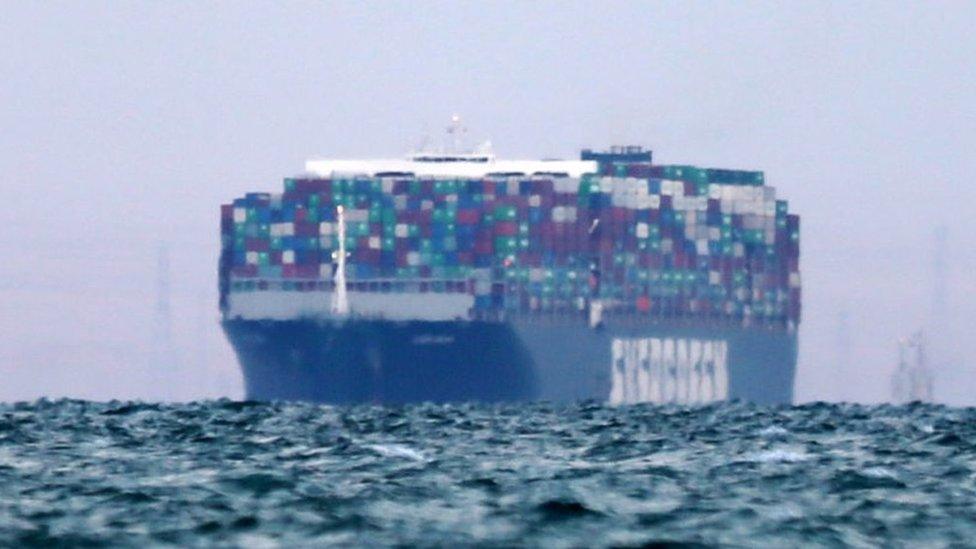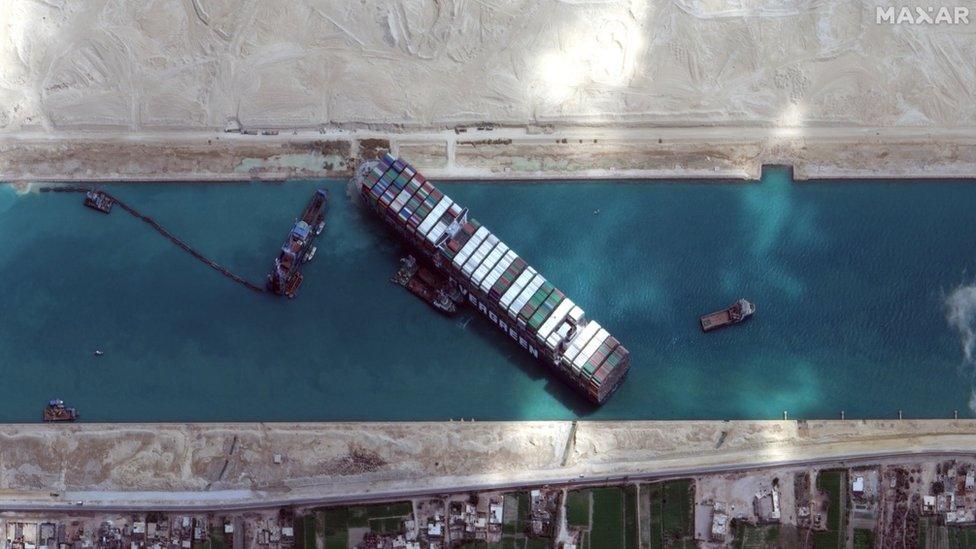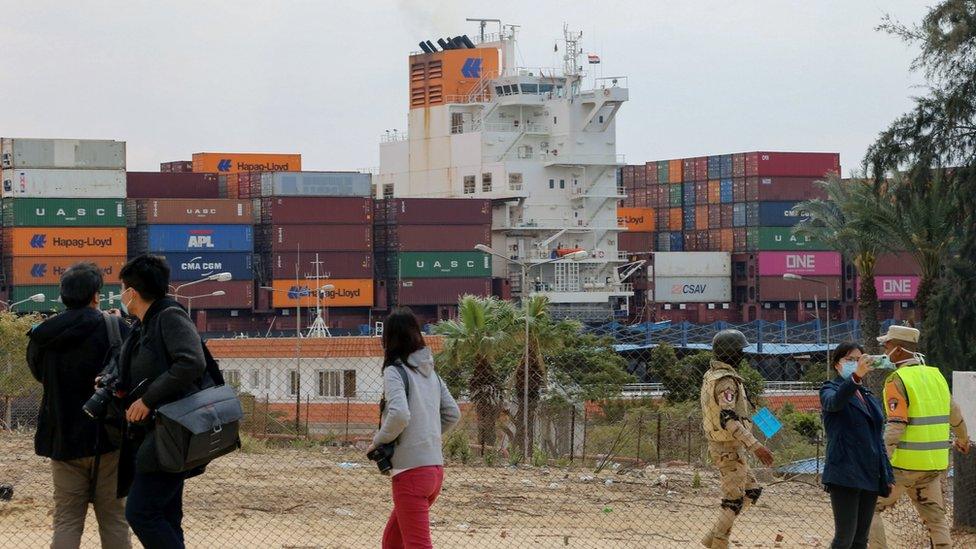Suez Canal: Egypt begins inquiry into cargo ship's grounding
- Published

The Ever Given is at anchor in the Great Bitter Lake, where it is undergoing inspections
Egypt has begun a formal investigation into how a giant container ship blocked the Suez Canal and disrupted global trade for almost a week.
Suez Canal Authority (SCA) adviser Sayed Sheaysha said experts would board the Ever Given on Wednesday to obtain data relevant to the incident.
The probe will examine the vessel's seaworthiness and the crew's actions.
The Ever Given has been anchored in the Great Bitter Lake, the canal's midway point, since being refloated on Monday.
The 400m-long (1,312ft), 220,000-tonne ship became wedged diagonally across the waterway on 23 March after running aground amid high winds and a sandstorm that affected visibility.
It was freed after a major salvage operation involving a flotilla of powerful tug boats and dredging vessels that shifted an estimated 30,000 cubic metres (1.1m cubic ft) of mud and sand.
(29 March 2021) The stranded container ship is seen finally on the move and no longer blocking the canal
More than 160 ships have passed through the canal since it was unblocked, as the SCA attempts to clear a traffic jam of 292 vessels waiting to the north and south, according to services provider Leth Agencies.
About 12% of global trade passes through the 193km (120-mile) canal, which connects the Mediterranean Sea to the Red Sea and provides the shortest sea link between Asia and Europe.
Mr Sheaysha told Reuters news agency that the captain of the Ever Given as well as the ship's Japanese owner, Shoei Kisen Kaisha, had expressed their readiness to co-operate fully with the investigation into the grounding.
However, the SCA adviser complained in an interview with Egypt's ON TV on Tuesday that the vessel had failed to respond to an emailed request for it to send over all relevant documents.


The vessel's technical managers, Bernhard Schulte Shipmanagement, said on Monday that its initial investigations suggested it had veered off course due to strong wind, external. They also ruled out any mechanical or engine failure as a cause.
However, SCA chairman Osama Rabie believes the impact of the wind was not the main reason for the incident, and that "technical or human errors" may have been to blame.
"The Suez Canal has never been closed because of bad weather," he told reporters on Monday.
He also denied size was a factor, saying "larger ships" had used the waterway.
Mr Rabie, a former head of Egypt's navy, has also stated that the two Egyptian canal pilots who were on board the Ever Given to guide it through the canal were not to blame, saying they were of a "senior level and highly competent".

This satellite photograph from Sunday shows how the Ever Given was wedged across the canal
The results of the investigation could have major legal repercussions, as various parties seek to recoup the costs of the repairs to the ship and the canal, as well as the salvage operation.
There are also likely to be claims from the owners of the cargo on the Ever Given and of the other ships that have been delayed for losses related to perishable goods and supply chain disruptions. The blockage held up an estimated $9.6bn (£7bn) of goods each day.
Shoei Kisen Kaisha reportedly has $3bn (£2.2bn) of liability insurance in place through protection and indemnity clubs.
The chairman of Lloyd's of London said on Wednesday that the blockage would result in a "large loss" for the leading insurance market. Bruce Carnegie-Brown told Reuters it could amount to $100m (£73m) or more.

Container ships passed the city of Ismailia, located on the west bank of the canal, on Tuesday
Guy Platten, secretary general of the International Chamber of Shipping, said it would take some time for the industry to recover from the blockage.
"They are trying to rush ships through the canal, which will have knock-on effects at the ports that are their destinations because they will be congested. So it will mean delays there," he told the BBC.
"It's also about where assets are placed around the world. We know that China, for example, is short of empty boxes [containers] to be filled because they are being delayed as well.
"All of this will ripple through the supply chain," Mr Platten warned.